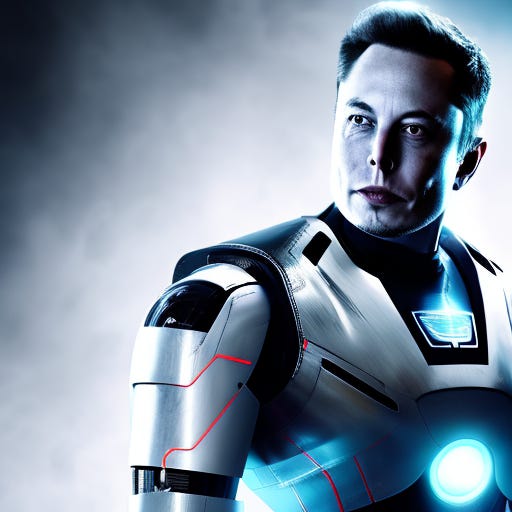Will Elon Musk Create a ChatGPT Alternative?
He left OpenAI's board in 2018, and publicly criticized the company last month.
The Information reported last week that Elon Musk “has approached artificial intelligence researchers in recent weeks about forming a new research lab to develop an alternative to ChatGPT.” While many rumors surely fuel this speculation, The Information connected with Igor Babuschkin, a former DeepMind and OpenAI researcher who expressed some knowledge of Musk’s plans.
Babuschkin said he and Musk have discussed assembling a team to pursue AI research but the project is still in the early stages, with no concrete plan to develop specific products. Babuschkin said he left DeepMind last week, adding that he has not officially signed onto the Musk initiative. “I’d like to work with Elon on something in the LLM space,” he said, referring to large language models.
Et tu, Elon?
You may recall that Musk was one of the original co-founders of OpenAI. You might not have heard as much about why he publicly separated himself from the company in 2018. OpenAI’s decisions in 2018 and 2019 provide useful context behind his statements that express concern about OpenAI. Voicebot.ai detailed Musk’s role between 2015 and its shift to a for-profit company in 2019.
Musk served as co-chair when OpenAI launched in late 2015 as an open-source nonprofit. In earlier comments, he described his idea of OpenAI as a competitor for Google. OpenAI shifted away from the nonprofit model in March of 2019, becoming a for-profit firm in order to raise investment and operate more like a standard startup…Musk left OpenAI’s board in 2018 [presumably because of the shift to a for-profit structure] and has no financial stake in the company.
Vice outlined the Zeitgeist behind what Musk and many others have tacitly and explicitly expressed.
OpenAI's recent actions—all happening at the peak of the ChatGPT hype cycle—is a reminder of how much OpenAI's tone and mission have changed from its founding, when it was exclusively a nonprofit. While the firm has always looked toward a future where AGI exists, it was founded on commitments including not seeking profits and even freely sharing code it develops, which today are nowhere to be seen.

TruthGPT
Comments by Musk on Twitter saying, “What we need is TruthGPT,” “All things in moderation, especially content moderation,” and a negative reaction to the perceived censoring of comedian Dave Chapelle by ChatGPT, have fueled speculation that Musk believes there should be an “anti-woke” large language model (LLM) alternative.
However, the lens of the PC-culture wars appears to oversimplify the broader intent. Babuschkin told The Information:
“The goal is to improve the reasoning abilities and the factualness of these language models,” [Babuschkin] said. That includes making sure the model’s responses are more trustworthy and reliable, he said.
It is hard to believe Musk would create a company just to battle the culture wars on another front. Removing filters does not exactly require a lot of complex scientific research. However, Musk is not alone in wanting to address the “factualness” gap of LLMs. This is an unsolved problem. Pursuing that goal while preserving freedom of thought and organizing as a non-profit could animate an inventor like Musk as well as researchers looking for an interesting challenge.
The founders of OpenAI said in 2015 that they wanted to create a counterweight to Google in AI research. They succeeded, in part, by making Microsoft the biggest part of that counterweight. In case you missed it, Microsoft seems to have effective control over OpenAI since its latest investment. The concentration of AI technology in two companies is surely better than in one, but it seems a long way from the intended goal of an AI research company dedicated to the public good.
With that said, more counterweights are emerging. AI21 Labs, Anthropic (well, this company did just take a big investment from Google), Cohere, HuggingFace, and others all provide LLMs that compete with OpenAI’s GPT-3 and Google. Meta and Amazon also have solutions. Competition has become abundant. This means the rationale for a new Musk-led AI company would have to come back to the non-profit status and a set of values that are distinct from the for-profit companies.
Elon Musk has the means to make this happen, but it is unclear whether it is necessary or practical in the current environment. The world of 2023 is very different from 2015. Then again, if Musk wants a seat at the table, he has shown a willingness to do what it takes to move technology and ideas forward. If he does, I expect it to be a non-profit and focused on a near-term AI problem as well as longer-term projects such as AGI.






